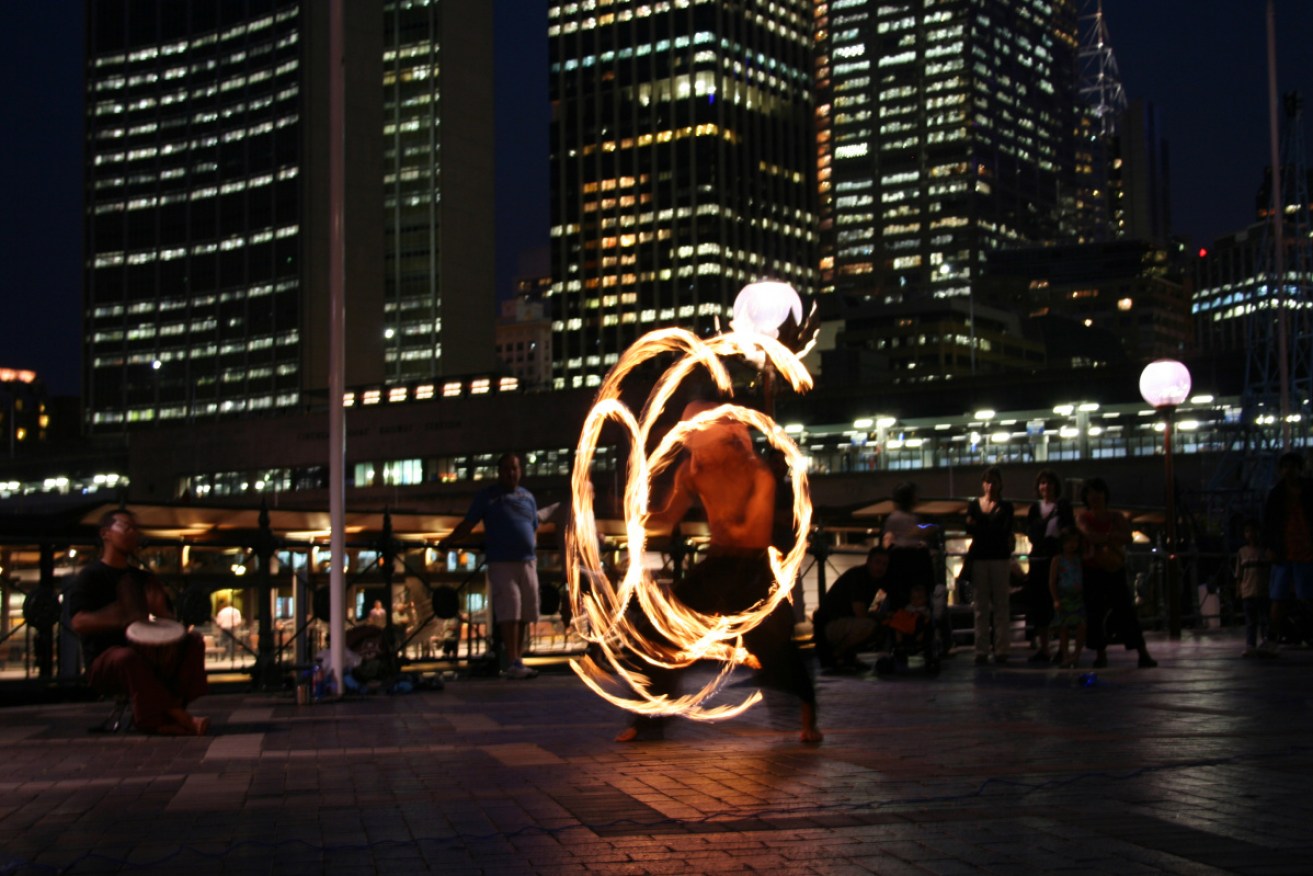State of the arts: Why are our performers being left behind?


From fire twirlers to poets, Australian creatives have been left behind. Photo: Getty
Trevor Ashley has performed in Hairspray, Les Misérables and Priscilla Queen of the Desert, produced sold-out shows at the Sydney Opera House, and put together national tours for massive Australian stars.
Now, he may have to sell his house to stay financially afloat.
Ashley is just one of the thousands of the arts and entertainment workers across Australia struggling through the coronavirus crisis.
The industry laments they’re being left behind by a federal government that has splashed cash to save other industries from economic collapse.
Meanwhile, the meagre amount of money reaching the arts sector just isn’t enough, artists argue.
Further, the grants allocated aren’t reaching those most affected by the coronavirus crisis, and who are ineligible for JobKeeper support.
As one performer puts it, the lack of funding shows the government cares less about the trivia in the pub, date nights at the theatre and burgeoning musicians than putting footy players back on the field.
‘Fired as soon as theatres were closed’
The federal government has allocated $27 million to the cultural and creative sector through the Relief and Recovery Fund.
Currently, more than 193,000 arts workers are employed in the arts industry and most are ineligible for JobKeeper.
“It’s not covering anywhere near the number of people that work in this business,” Ashley said.

Ashley at the Midsumma Festival. Photo: Smith & Jones Management
Instead, he argues sport is a much greater priority for the government than the arts.
For example, the Queensland government this week announced $50 million would be repurposed to help families afford to get their children involved in community sports again.
Whereas Live Performance Australia has relentlessly lobbied the government to help pubs, clubs, theatre companies and performers get back on their feet and start entertaining Australians again.
“They have not come out with any kind of package at all to help us,” Ashley said.
“I have friends who were in long-running musicals and long-running shows that had been employed for over a year.
“They all got fired the second they closed theatres down (and ) … they didn’t get JobKeeper because the companies had to close production before they’d even come up with JobKeeper.
“I’m a small producer, but I do produce a significant amount of work … I don’t know how I’m going to be able to keep doing that after this is over, and where that money is going to come from because it’s all gone.
“It’s hard to know how to move forward without selling my house.”
‘The arts industry is grieving’
Melbourne nurse and comedian Zule Khan slammed the government for their “severe neglect” of the arts sector, saying there has been an “incredible misunderstanding” on how the industry generally works.
She’s estimated to have lost about $50,000 from cancelling comedy gigs including a show at the Melbourne International Comedy Festival.
“I was set to have the best year as an artist that I’ve ever had,” Khan said.
Now, she has no idea when she’ll be able to get back on stage – and the government isn’t helping.

Khan uses her job vaccinating people as material for her comedy. But the future of her gigs is clouded by uncertainty. Photo: 3 Fates Media
“The arts industry is grieving … because we seem to be the ones that have been left behind.
“It makes us feel as though we’re not worth the conversation. What that does to your mental health is terribly damaging.”
‘Time will tell whether it’s adequate’
Clive Miller is the chief executive of Support Act, a charity that last week received a $10 million grant from the government to support struggling artists, crew and music workers.
Although they’re “very grateful”, Mr Miller said only “time will tell whether it’s adequate or not”, adding that “the government is keen for us to expend those funds over the next six months”.

Like most theatres, the Sydney Opera House was forced to close its doors following government restrictions. Photo: Getty
“If we think that more money is required, we will be alerting the government to that fact,” he said.
He noted that the funding has enabled Support Act to expand access to its free 24/7 phone counselling service, which is being offered to all arts workers including those who work in the music industry.








